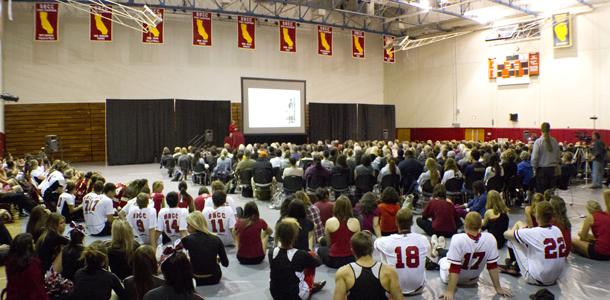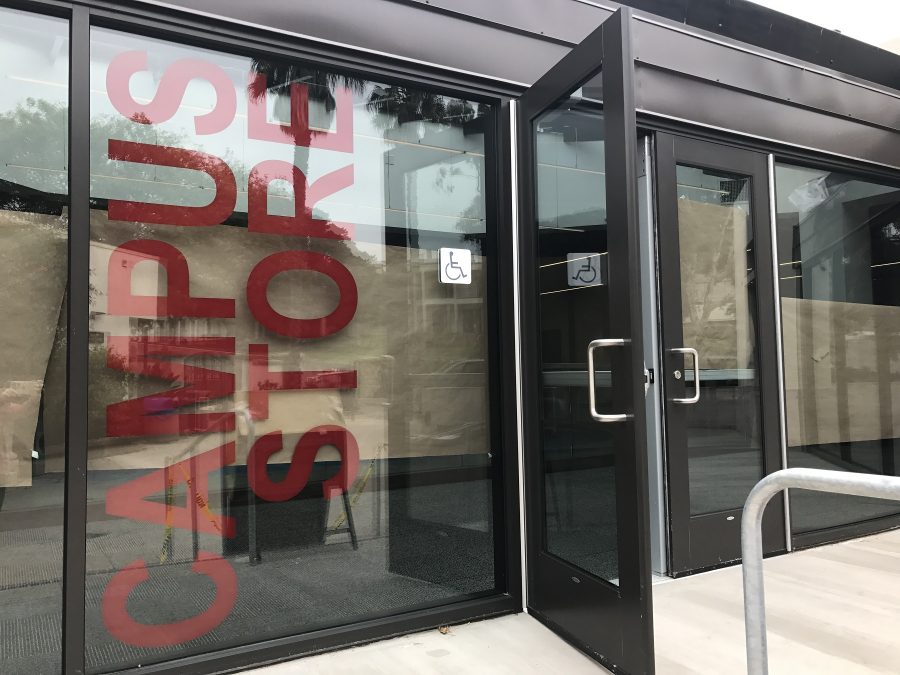It is common knowledge that physical education plays a vital part in maintaining good health, but not many realize how important it is in terms of intellectual growth.
Kathy O’Connor, department head of physical and health education, at City College, spoke about the importance of physical education to those crowded inside the Sports Pavilion at the 33rd Annual Faculty Lecture on Wednesday afternoon.
O’Connor is best known for starting the women’s athletic program at City College and has been an athletics academic adviser for more than 30 years.
Her speech was titled, “Were Ancient Greeks really ‘dumb jocks’? A Sound Mind in a Healthy Body.”
Student-athletes and coaches from each sport at City College were recognized prior to the start of the Faculty Lecture. Members from each team ran on stage to cheers and applause from the audience.
O’Connor began her speech by examining the question that is in the title. She then gave a brief summary of the history of physical education in ancient Greece as well as in present-day America.
The main point of her speech was to disprove the idea that student-athletes aren’t as smart as those students who choose not to participate in sports.
“In the past few years the NCAA really has taken this challenge to heart,” said O’Connor. “If you look at the graduation stats from student-athletes, 79 percent graduate in six years as opposed to only 57 percent graduation rate for the rest of the students.”
But it’s not just student-athletes that benefit from taking physical education classes.
“Students who participate in physical education, not even athletic programs, have a higher success rate when looking to transfer,” O’Connor said.
Sixty-six percent of the full-time students at City College are currently enrolled in at least one physical education class.
“Those students become very connected,” said O’Connor. “They feel a responsibility to come. Other students encourage them. It really creates that atmosphere for learning.”
The Achievement Zone, a library-type environment with tutors to ensure that athletes get the help they need, was created to help student-athletes focus on school.
“In our Achievement Zone each athlete is required to spend three hours,” O’Connor said.
In Fall 2009 the Achievement Zone wasn’t active at City College. During this time, the average student-athlete GPA was 2.45 with 60 students on academic probation.
Compare those numbers to the Spring 2010 semester–when the Achievement Zone was active. The average GPA among student-athletes was 2.93 with just 20 students on probation.
Paula Congleton, softball coach at City College, is the director of the Achievement Zone.
“She’s done an outstanding job,” said O’Connor. “All who have participated have made a huge difference in our students’ success.”
O’Connor concluded by explaining the health benefits of physical exercise and how important it is that we continue to be active, even as we grow older.
“Here we are,” O’Connor said. “How many of you are willing to take the challenge? You have to come out of the darkness. Take one step at a time.”








